The Legality of Tiny Houses
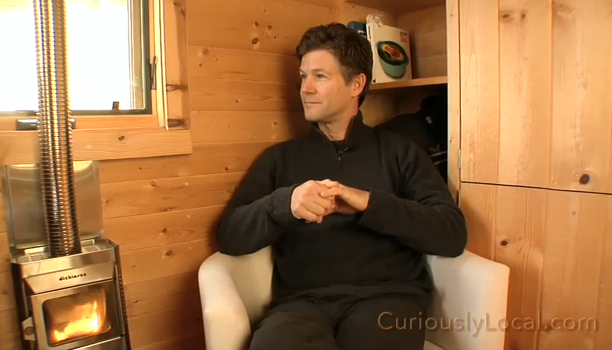
In the following interview with Tumbleweed Tiny House Company, the original founder Jay Shafer, he describes some of his initial motives for choosing to live in a tiny home. Civil disobedience was one item that topped the list. Demonstrating that size was not a requirement for safety, prosperity, or happiness was (and still is) one of Jay’s primary motivators.
Most of us can identify with this aspect of tiny houses, and it’s true, in some circumstances living in a tiny house can be illegal. But there are a lot of good reasons beyond Civil disobedience for choosing extreme downsizing. There are also many people who are uncomfortable with the possibility that living in tiny houses might be illegal.
Jay does go on to describe some of the loopholes, like setting up tiny house communities on former mobile home park sites, where the zoning would permit tiny houses. But I wonder if these notable exceptions are overshadowed by his primary message.
I’m not knocking Jay for leading with his convictions – quite the opposite. But I wanted to emphasize that tiny houses can be legal to live in. The reason I’m taking a moment to point this out is that the number one question I hear is… where can I live legally in a tiny house? People want an affordable and legal tiny house option.
The problem is that tiny houses break many of the conventional rules for single family zoning. So if you were to ask your local building department for a permit to build a tiny 120 square foot dwelling on a permanent foundation, it’s likely that many changes to your design would be required including increasing the square footage.
This is not the case in all communities. Some places have far less restrictive rules, but determining which communities would allow tiny houses is as complex a puzzle as the diversity of the codes themselves.
The easiest way to avoid the building departments’ fees and regulations (typically speaking) is to build your tiny house on a trailer foundation. This was the loophole Jay used initially. The trailer typically puts the house in a category not covered by building departments – and under the much less restrictive governance of the highway departments.
So if you like the Civil disobedience aspect – more power to you. If you’re uncomfortable with breaking laws there are plenty of legal loopholes for you to work within. At the end of the day those looking for solutions will succeed and those looking for obstacles will stumble and fail.
For more ideas about where you can live legally in tiny houses read my post titled, Locating Land for Tiny Houses.
If you’re like to learn more about Jay Shafer visit the Tumbleweed Tiny House Company website.
Here is the interview with Jay Shafer.

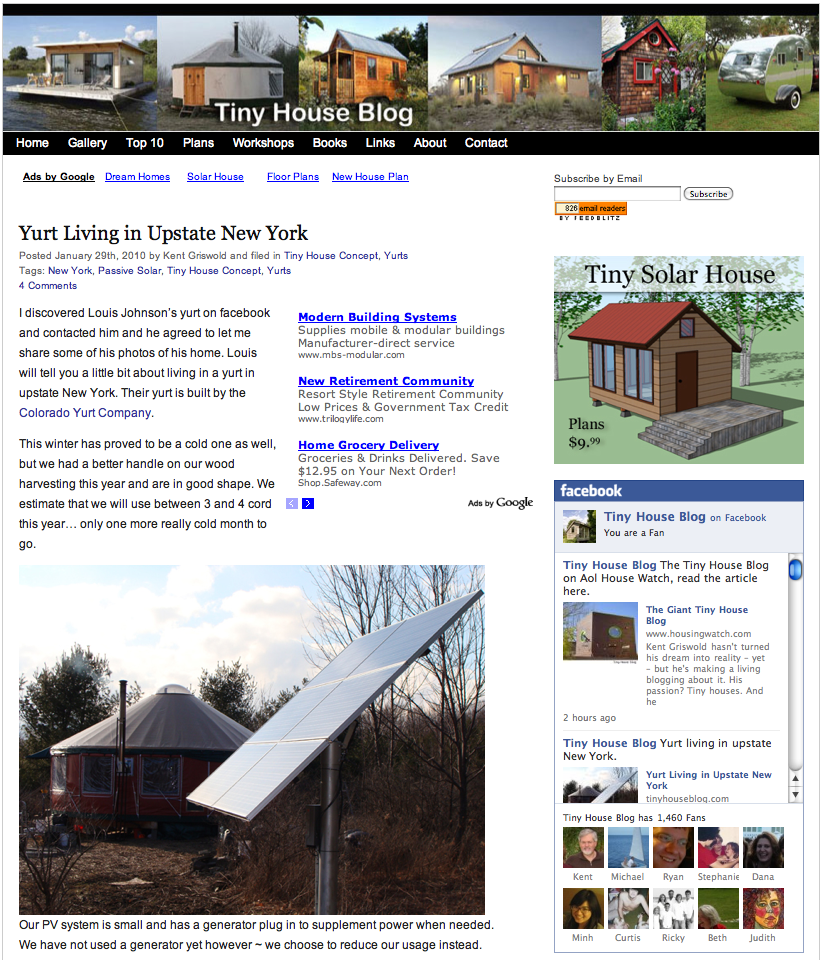
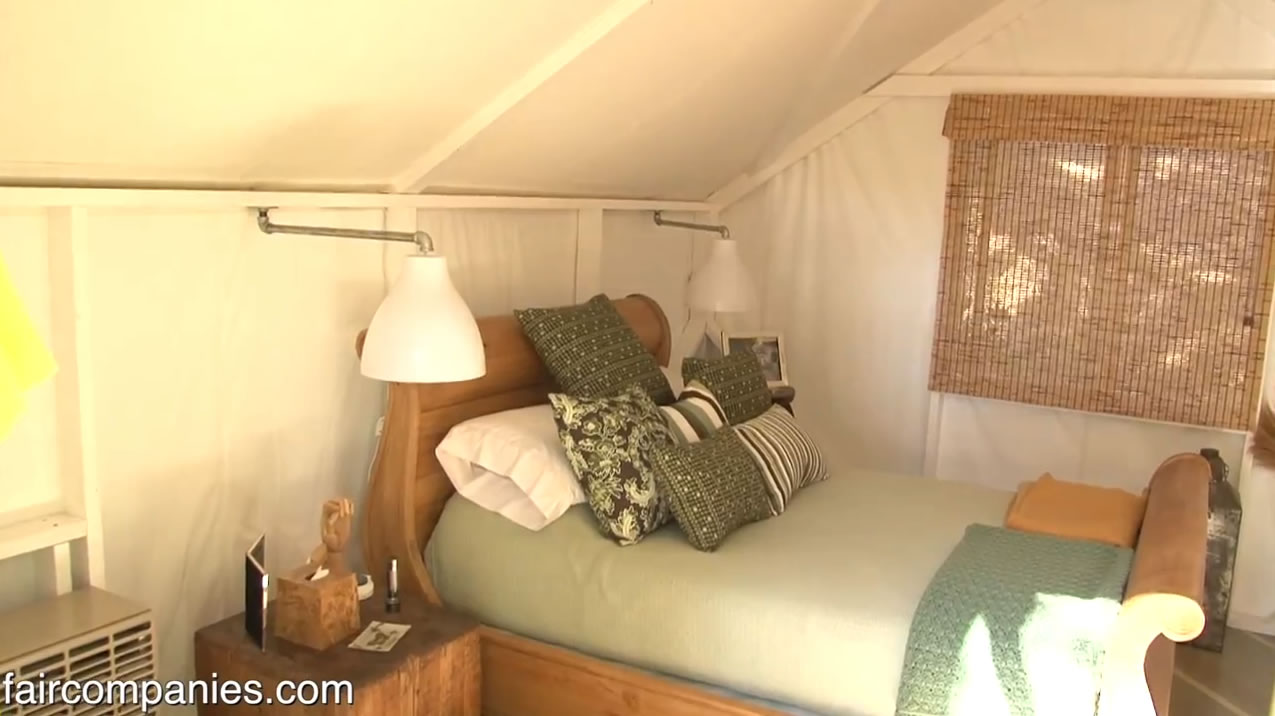
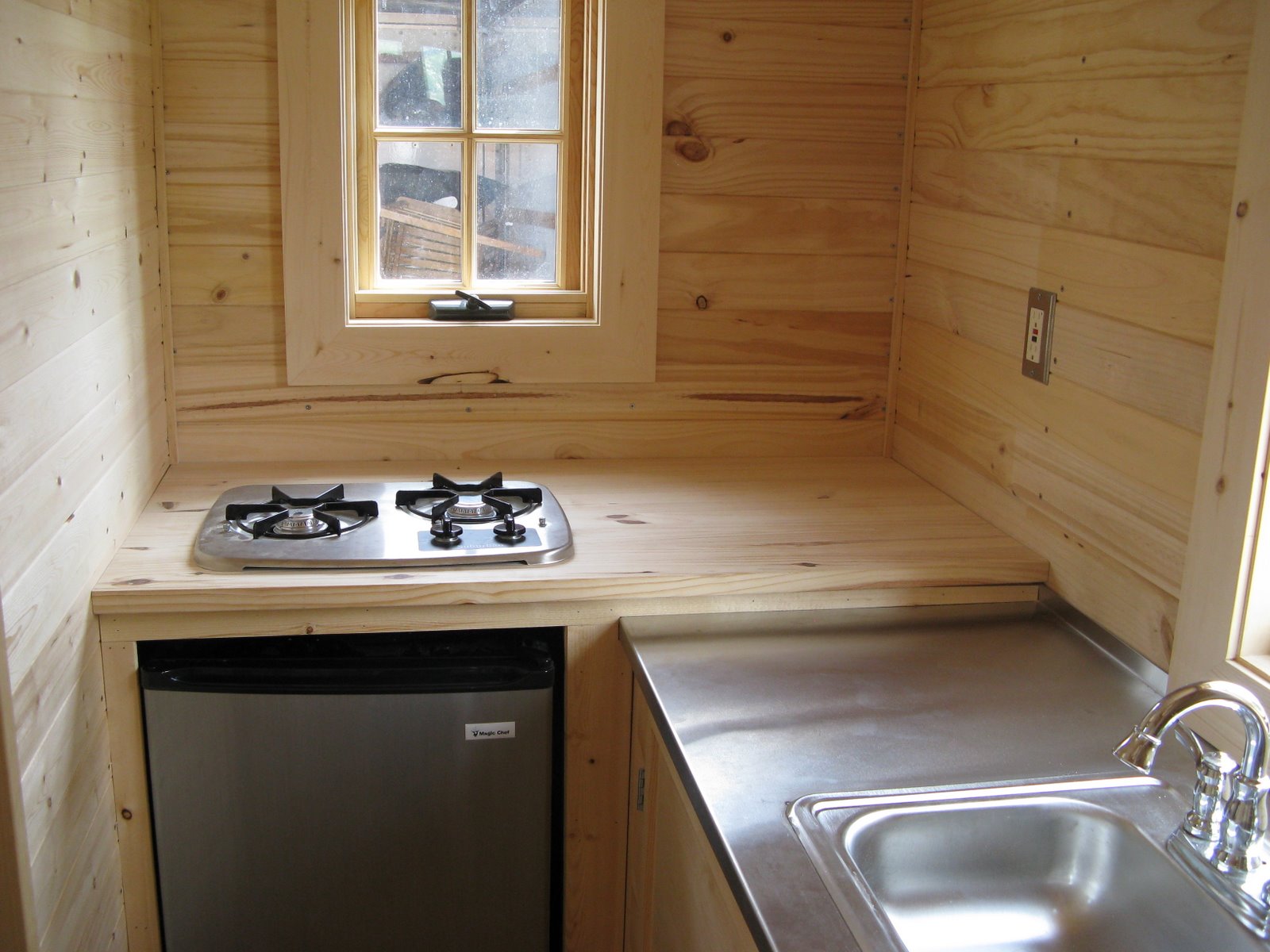
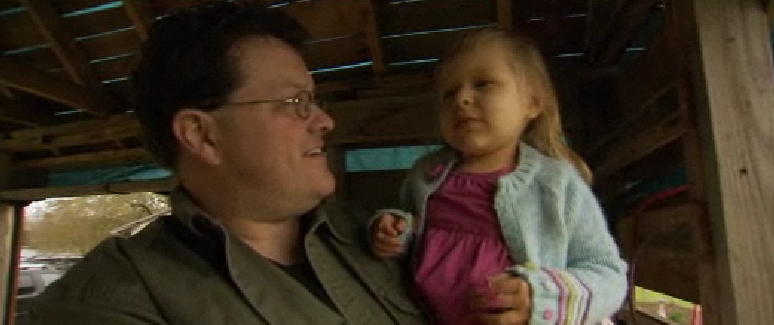
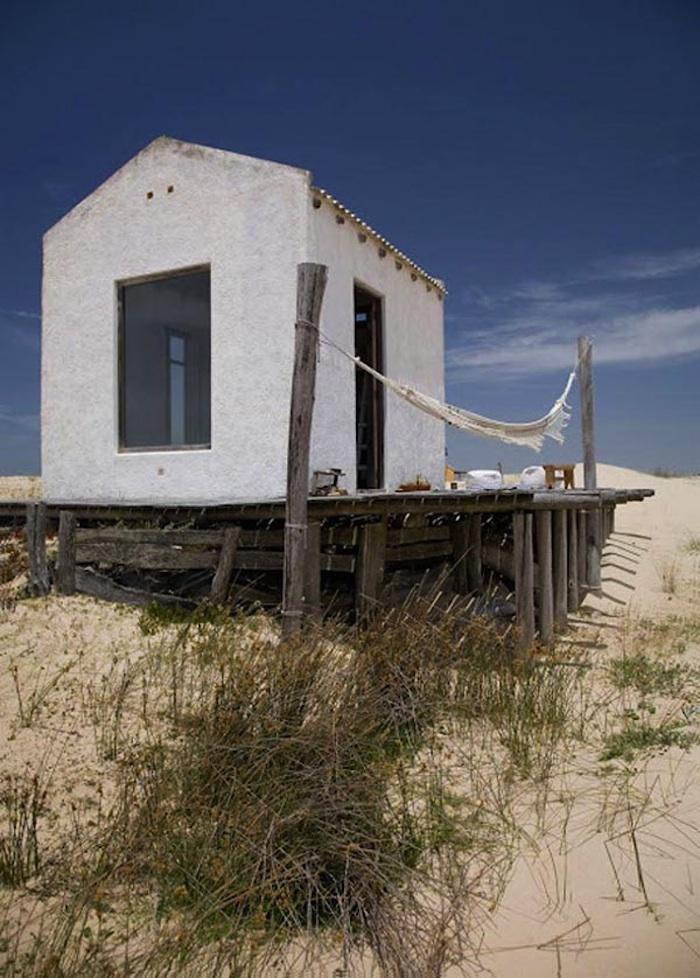
Thanks for posting. A huge advantage of small homes is small amounts or no debt. If your house is paid for and you don’t have rent it gives one more options. If the economy slows the pressure is off. I live in rural Alaska. No building codes, no inspector and no property tax. It is not for everyone but it is good for me.
God bless
100 % agree.
my name is kevin too 😀 and i agree
It depends what you mean. Yes you can live in a tinyhouse in some areas, but Jay is quite right : living in a tinyhouse is illegal.
Except for a few exceptions. It is the rule rather than the exception. Especially for economical tinyhouses.
I don’t like it, but after much investigating, (some details on my blog towardsabettertinyhouse.wordpress.com) this has emerged clearly as the truth. IMO there is much to be gained by thinking about changing it.
I know it can be hard to let go of the notion that we live in a reasonably free and just society, but there it is.
Yes there are a few areas you can do it legally if you are willing to move to e.g. the Ozarks, yes there are trailer parks although some will not allow tinyhouses apparently, yes in some cities like Portland you can “camp out” in your backyard.
However camping out != living there full time. I do not know but would not be surprised if you were not allowed to connect plumbing or electricity for instance. Often there is a time limit like 30 days.
Yes putting the house on a trailer can help. It can help becaset you may be able to go to a trailer park, it can help you claim you are camping, it can help you dodge building codes. It can help you dodge or reduce the impact of enforcement if you do break the law.
But it is no panacea. Far from it. You are still subject to zoning for instance, covenants, and probably other rules too.
You can live in a tinyhouse. But can you legally live in a tinyhouse, especially one of your choice, where you need to live? I’d say 90% no based on the evidence I have seen. In other words: Succeed at what, exactly?
Just in case people aren’t ready to go completely off the grid, there are ways to not only live in a small house legally but also do the additional good deed of preserving already existing architecture. In Philadelphia, there are plenty of really small homes, typically well under 1,000 square feet, and some as small at 300 or 400. These are row houses that insulate themselves and use less energy than a detached home. You can put solar panels and green roofs on them as well and most people don’t need a car. Community is a good thing – borrowing cups of sugar and watching each other’s kids and the like. Although it’s not as inexpensive as a do-it-yourself home, it is an alternative.
Poverty and debt is rampant in our country and children and single mothers are the largest group of people affected. A small “granny flat” or fill-in on a quarter acre lot or more could significantly reduce living expenses for them. It just seems “unAmerican” to not push for freedom in how we use our land. The building codes serve the people, not the other way around. Safety, fire codes, health, etc. must not be compromised in the quest for financial freedom and meeting basic needs. Larger houses and excessive living space is a concept that serves the construction trades, mortgage and banking industry, and artificially inflates perceived value of homes, thus jacking up the taxes based on assessed value. Smaller homes that are stick-built and do not increase sprawl are brilliant. They are truly homes designed for people who live in them rather than generic boxes mass produced to make a ridiculous profit. I would love to see a discussion about how to petitition local government to adjust their codes to reflect the needs of their community members. Portable homes are great, but do not serve families very well.
You Go Laura! I Would love to know how to fight local and National Government on this… It is time that We The People TAKE BACK OUR RIGHTS, and put the US back into the USA!!!
Much Love,
Vikie L. Howell
I agree. I am retired and living on a fixed income. I like many others would rather live tiny and debt free and be able to travel and enjoy our lives than have a huge house to drain us dry and tie us down. I don’t understand the big deal about purchasing a piece of property in an area zoned for houses and building a tiny house. I am tired of taking care of a house too big for my needs and then the lawn to go with it. I would rather enjoy life. We can change the rules if we have enough people speaking up.
The problem is huge. And even in places where it might be legal to “camp out” in your own back yard, that still requires that you actually own a back yard, presumably with a large expensive house on it, which is what I would be looking to avoid by living in such a small home.
Jay’s interview is disappointing. Clearly more has to be done and Jay is in a position to make a case and encourage the conversation. This interview wandered off into yet another sales pitch for the benefit of tiny houses and a tour of his creation but he didn’t have much to say on the legality of the tiny house, other than to say that it can be form of civil disobedience.
Perhaps we should reread Henry David Thoreau’s ‘Civil Disobedience’ and his contemporary Gene Sharp, whose in 1973 wrote “The Politics of Nonviolent Action” and his 1993 handbook “From Dictatorship to Democracy” has served as a basis for many revolutions around the world including the recent one in Egypt.
His handbook is available as a free pdf download from the Albert Einstein institute http://www.aeinstein.org/organizations/org/FDTD.pdf
Some thoughts…
Jay promotes his business as a primary motive and the Tiny House market as a corollary.
The fallacy is that Jay’s promotion undermines the politics of the Tiny House movement. More publicity means attracting unwanted attention from the government. Attention from government usually means taxation and regulation. These are antithetical to prospective builders for it would negate the economic benefits.
Secondly, the word “democracy” is not found anywhere in the U.S. Constitution. On paper, we are a Constitutional Republic. The Framers held a low opinion of democracy since it’s “mob rule”. 51% cannot trump the rights of 49%.
Out of interest, what is the minimum house size in most areas? It’s referenced here often, but being from the other side of the pond, it’s not so easy for me to understand. How far off the mark are tiny houses? Is it as simple a minimum size in square feet or a series of definitions of corridor widths, number of exits etc?
Where I live, houses must be at least 1000 square feet. Camping is not allowed. Sheds can be built, and, so long as it’s a single structure under 100 square feet it can be built without a building permit, but can not be inhabited. Also, they specifically disallow building “sheds” on trailers to get around size restrictions.
Wow! In metric terms that’s 90m². Our (not so large house) that we are going to build is only 6m² more than that, but there was nothing (that I’m aware of) to prevent us (in France) from building smaller. In fact, I think the only ruling is that under 9m² (So around 100 sq ft) you can’t let out the property.
Once you have a property on the site, you can build a structure of up to 15m² with no planning permission (or rather, no application, permission is automatic).
because they are all only worried about how much money they would be losing on taxes, that is their only concern. Not the PEOPLE’s needs.
It is time for a Revolution of America. It is time that Government STOP DICTATING, and START LISTENING!
Just took a look at local municpal codes and discovered that recreational vehicles are prohibited for longterm occupation at mobile home parks. Not sure if a Tumbleweed can get around being called an RV, when you have it licensed as a trailer in many states. Of course these regs are a labyrinth of exceptions and special mentions and I doubt what I read can be spoken as final gospel, but just wanted to highlight the fact that residing a reasonable distance from job, services, etc. might be harder than one thinks. Single family dwellings appear to have minimum sq. footage of 780 sq. ft. This doesn’t bode well for those of us trying to shed mortgages, etc. Apartments get to be 380 sq. ft. or more. It looks like you need to get apartment zoning and create a collective of tiny houses, which probably involves more lawyering than I want to afford.
Amen Vikie. If you want something fixed you have to break it first….
Illegality in home size comes from two sources – the local zoning and the national model code organizations. Changing either one will be a challenge, but I expect the more difficult fight will be at the local level. Its easy to refer to the “Government” as a faceless, heartless entity, but, at the local level it is your neighbors that make the rules. I know because as a Planning Commissioner,I’m one of “them”. To change their minds you will need to figure out the basis of their rule-making and show them a new idea. As for the model codes, they too are rather set in their ways, but they have a pretty straight-forward change process.
Samuel Mockbee and the tiny house movement Jay Shafer started has inspired my fiance and I to live “tiny” too! But first we’re going to build one for someone else FREE and document the entire process on our blog: http://www.thetinyhouseproject.com What an inspiration all of these tiny house sites have been!
Thank you for the information, even though you are one of them… :O)
Sincerely, Vikie
Something that is important to keep in mind is how things come to be. This is frequently out of need. “The squeaky wheel gets the grease.”
Building codes exist for reasons, and perhaps accommodates for 99% of the need. Coming up with guidelines that can achieve the desired goals for 100% of the cases would be extremely difficult, if not impossible. One of the ways that “safety” can be taken into account is based on structure size: a larger structure on a concrete foundation should be more stable. This does not mean that you can’t have a small structure that meets the initial goal.
By trying to define things, and put codes and rules, we quickly end up in a situation where the outliers suffer. The people who are trying to do something that is in the <1%. It is frustrating due to things like having to fight in order to live legally.
This Tiny House movement is the kind of thing that can get regulation changed; bridging the way forward to tomorrow. If enough people are constantly coming to the zoning/regulatory agencies with problems for tiny houses, they will see a need to change things, and eventually the massive tanker will change direction. Starting out down this path stating that the government is taking away freedoms and needs to be stopped is a good way to have walls erected on your path (regardless of the truth) – and regulatory change may not advance. People like ToasterEric can provide good guidance for the nation and the people of the movement on how to get what they want (legal tiny house living).
The comment made about taxation and the government trying to take more from us certainly holds true, however the relevance of this point depends on your starting point and goals. For someone trying to live sustainably, cheaply, where they want, and legally, getting rule changed will help them. For someone living on the fringe of the numbers/society to avoid taxation, changed rules would of course mean that organized government would be coming into their territory – so they'd perhaps need to move to Alaska! The key point here is that these are two very different perpectives on the whole subject of tiny house zoning rules.
Thanks all for your stimulating comments! It is heartwarming to see that such a movement is afoot and has strong backers!!
Cheers,
Greg
Remember when George the 41st (H.W. Bush, that is) told us Americans to all go shopping to help the economy? Well, we Americans have not been referred to as “citizens” for a long time…we are referred to as “consumers.” And without putting it in so few words, “consumption” and “patriotism” are pretty much synonymous in the subconscious minds of many of our fellow citizen/consumers. Building codes exist to preserve and promote a society economically dependant on consumerism and materialistic pursuits.
Obey all the laws your whole life: die anyway.
I’m looking to do it on the sly 😉
I suspect the best route to go is to get an old, tiny mobile home. One that is one bedroom, only about as large as an 18 wheeler trailer. They are 100% legal as far as I know since they *did* meet building codes when built and since they are on a trailer frame foundation, I suspect they may be legal anywhere you put it that allows mobile homes. It won’t be as tiny as a tiny home but they are affordable used if you can find one and there’s a good chance it’ll be legal. It’s unfortunate that large travel trailers don’t fall under that same category due to their much smaller size. I saw a 32ft travel trailer at a garage sale for $2500 about 4-5 years ago. It would be a nice “tiny house” but not legal except in RV parks and certain rural areas where they don’t care.
I live in a rural area in Ohio and was told by the zoning board it’s illegal to live in a travel trailer on my parent property. I have permission to live there and the county said it wasn’t allowed.Why is that? My parents has over an acre of land. They said since it’s in a rural area you can only have 1000 square foot on a single living space. If you know how to get around all the BS please let me know. I want to get at least a 30ft or larger travel trailer. thanks
We want to build a 500 sq ft home.
Is there a legal minimum-square-footage for new construction in Oregon? I’ve read that a home must be at least 800 square feet for two people and 200 square feet for each additional person; 50 square feet for each dog. This seems extreme. We comfortably raised seven children in our 1,800 square foot home and had no idea we were breaking the law. LOL Oh yeah, and we had two dogs outside. But, I guess the dogs weren’t included in the house square footage, sheesh.
Well, the kids are gone and we want to build a modest, eco-friendly, efficient, small home for two, including our inside mini-poodle.
Is this legal minimum-square-footage information bogus … or maybe just an ideal-per-person suggestion?
My understanding is that Oregon has state-wide building codes. I’m not sure what the details are but you can probably learn more at: http://www.cbs.state.or.us/external/bcd/
I love this guy. He echoes so much of what I’ve been thinking for so long.
Restrictions to the size of a home are usually placed on houses that are in town or on lots smaller than an acre. Larger tracts of land that are outside of a town or city can have cabins on them and a cabin has fewer restrictions on its size.
It really depends on the specific location – not just rural/suburb/metro. Every place defines its own rules. I wish it were simpler.
I am a severely disabled man who has difficulty walking more than a few steps. I currently live in a 2BR apartment that is almost 900 square feet, which is at least three times more than I need. I would LOVE a tiny house–maybe 150-180 square feet on one floor. Easy to clean, easy to get around in, cheap to heat, and no tendency to byu things with which to clutter the place. Sadly, my state requires 400 square feet of habitable space for anything you are living in for more than 30 consecutive days, and for permanent dwellings it is 400 sq
Some one with the time and knowledge should write up a code, based on the international code, made for tiny houses in specific. This could then be pushed and petitioned into the international code. As for local government the best way to solve those problems would be to unite in groups. If there are any other tiny housers near by try to be in the same town or county and collect more like minded people. The more concentrated numbers the more pull the group will have in local government.
From what I have read, a prison cell is commonly 8×6 (48sf), which is very clear that size is no safety concern for a tiny dwelling house… unless pride and greed say otherwise.
It’s funny a tiny home is illegal but being homeless is not. How sad .
Have you heard of anyone being able to hook up with water and sewer. Id love to move into a tiny home but am concerned about running water.
Yes it’s possible. Many tiny houses are built to connect via RV hookups and directly to existing water and sewer systems. The RV hookups are probably the preferred method.
What most people don’t realize is that the government cannot grant rights , your rights are inherent , they are many and don’t need to be listed or defined , the most basic rights are to life , liberty and property , each person should be able to enjoy these “God Given” rights without excessive government intrusion , taxation , and regulation ,…most of which is done for generating revenue by charging huge fees for permits while very little has to do with safety ,… people should have enough sense to judge what is safe and sufficient living for themselves and not have to ask for permission or rely on government to tell them how they need to live never